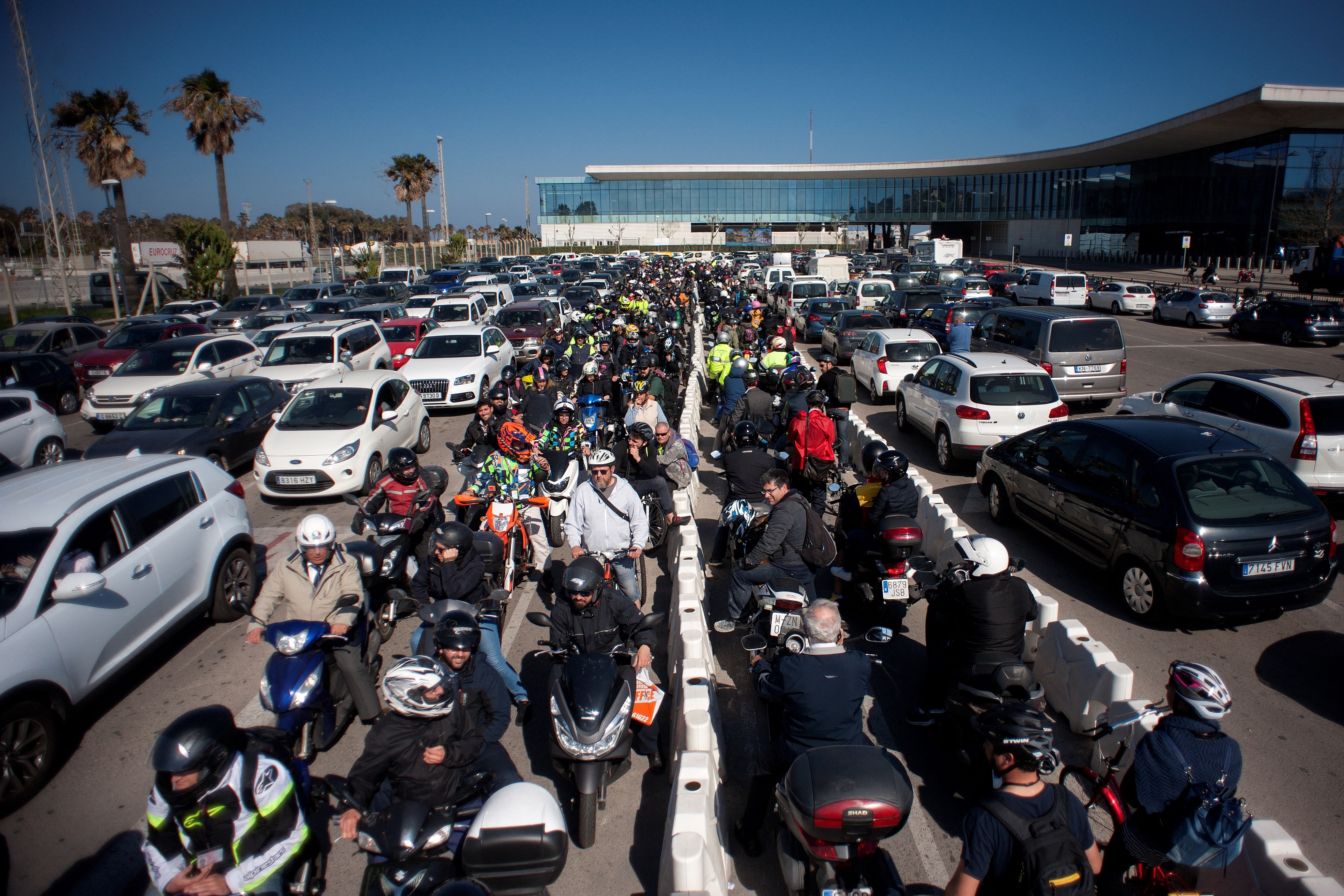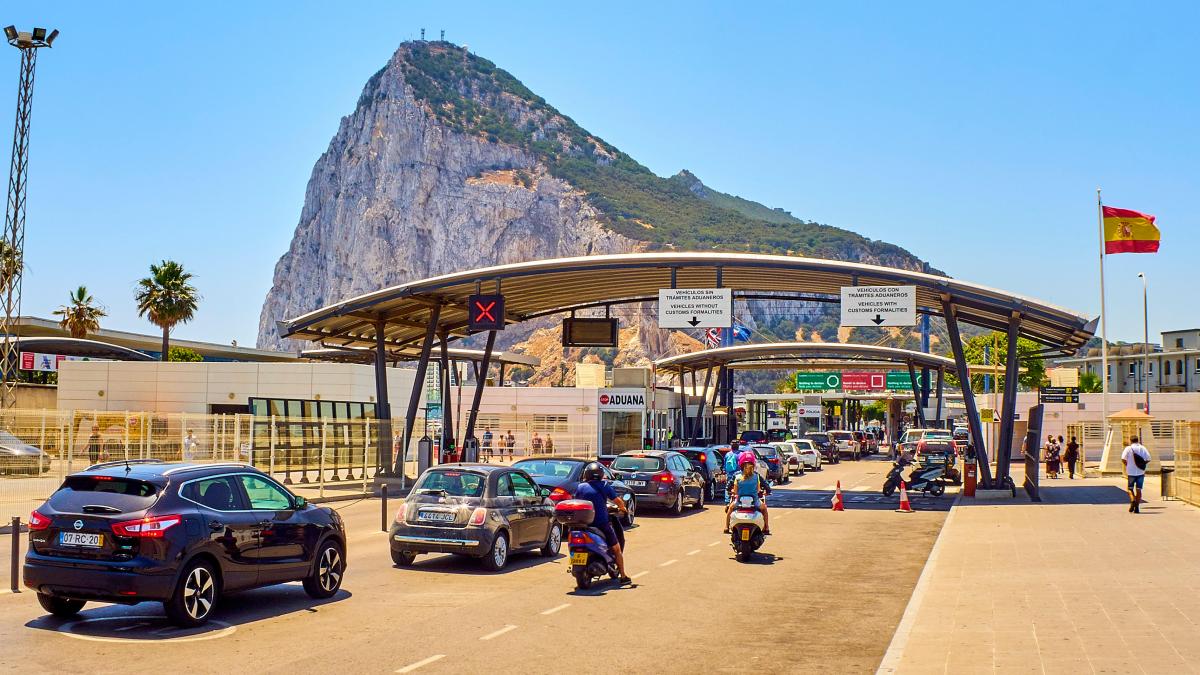The UK, the European Union and Gibraltar have finally sealed the deal, four years in the making, on the status of the British Overseas Territory. Negotiations between the three sides had been stalled frequently since Brexit, but Labour’s return to power last summer seemed to have given the talks new impetus.
The government said the deal sorted out “the last major unresolved issue” after the 2016 referendum. Some would contest that statement, but in terms of post-Brexit border problems Gibraltar was the last such thorn in the UK’s relationship with Europe.
Diplomatic relations between Spain and the UK date back more than 500 years, but they have been blighted since Gibraltar was ceded to Britain at the Treaty of Utrecht in 1713.
British diplomats had expressed frustration that bilateral issues had been stymied by the lack of a deal over the future of Gibraltar. Now channels should be more fluid in an important relationship.

David Lammy, the foreign secretary, with Fabian Picardo, Gibraltar’s chief minister
BEN DANCE / FCDO
There are more flights between Spain and the UK than between any other two countries in the world. Trade between the two countries reached €65 billion last year. The UK is the third-largest investor in Spain and the second-largest recipient of Spanish investment. There are about 400 Spanish companies registered in the UK, and about 700 British companies investing in Spain.
The Gibraltar deal, however, will undoubtedly be closely scrutinised by eurosceptics in Reform and the Conservative Party, who have so far criticised Sir Keir Starmer’s EU reset deal.
How does it affect sovereignty?
The governments of Gibraltar and Britain have been at pains to stress that the deal will not affect the sovereignty of the UK territory. The Westminster government’s statement after the deal was announced was titled: “Agreement protects sovereignty and economic security of Gibraltar.”
It went on to state that the agreement was designed to “protect British sovereignty, UK military autonomy and secure Gibraltar’s economic future”. Fabian Picardo, Gibraltar’s chief minister, echoed this, saying that the deal “does not in any way affect our British sovereignty”.
However, throughout the negotiations Spanish diplomats had been chipping away. José Manuel Albares, Spain’s foreign minister, insisted in 2023 that Madrid’s proposed control of Gibraltar’s airport, which is on an RAF base, was essential to an agreement. He tied the proposal to the possibility of the airport being used in future by flights from Spain and the EU.
Spanish diplomats spoke of the British “quibbling” over the demand, describing London’s attitude as “penny wise and pound foolish”. One said that Madrid’s aims were to “rejig the sovereignty balance slightly in Spain’s favour”. He added, with what some in Whitehall called “sophistry”, that such a rejig “weakens Spain’s negotiating position in the long term as a treaty would implicitly recognise UK sovereignty”.
Vice-Admiral Sir David Steel, the then governor of Gibraltar, told The Times at the time: “We must ensure that it doesn’t stretch into sovereignty … that it does not exceed what we can accept in terms of jurisdiction and control.”
So is this a concession to Spain?
Picardo has cast himself as a redoubtable defender of Gibraltar’s sovereignty. As a barrister who runs rings round MPs when holding meetings with them he is not expected to have agreed to a deal that would create a legal chink in the armour. However, the deal will be open to rival interpretations.
The British government and Gibraltar had strongly objected to the presence of Spanish police on UK territory. But in a victory for Madrid, Spanish police will indeed be deployed at the airport in exchange for an open land border between Gibraltar and Spain — effectively making the territory part of the EU’s Schengen free-travel zone. That may open a legal door to Spanish designs on Gibraltar in the decades or years to come.
Many Gibraltarians have voiced fears about the consequences of Spanish police operating on their territory. Will the deployment prompt concerns about the weakening of the guarantees of the British justice system? Yes, most likely.
How will it affect Gibraltar’s economy?
Critically, the deal will allow for the free movement of people across the border between Gibraltar and Spain. Freedom of movement is essential to the territory, which has a population of 30,000, as it is dependent on about 15,000 workers crossing the border every day from Spain.
Francisco Franco began restricting the border in the 1950s but it was in 1969, two years after 99 per cent of Gibraltarians voted against a Spanish attempt to assume sovereignty, he slammed it shut, dividing families and destroying livelihoods. The hardship that followed has been burnished in the Gibraltarian identity. The border did not fully reopen until 1985, a decade after Franco’s death, when Spain joined the EU. But since then Spain has continued to choke border traffic when political tensions increase with the UK over the territory.

JORGE GUERRERO/AFP VIA GETTY IMAGES
A lack of a deal would have been catastrophic for Gibraltar’s coffers. In an area of less than 7 sq km, there are more than 14,000 registered companies. Gibraltar is home to most of the UK’s biggest gambling companies, a thriving car insurance sector and the business of importing alcohol and tobacco. Without the extra labour from Spain, its economy would be upended.
Instead Gibraltar will in effect become part of the Schengen area, allowing freedom of movement for workers with entry checks only carried out at its port and airport. Gibraltar will become closer to the EU’s customs union — which it was not in before Brexit — opening up new commercial opportunities.
However, a huge concern for Gibraltarian businesses will be that, according to sources close to talks, a major concession made by the UK to Spain — which was not mentioned in the joint statement — is that in accordance with Madrid’s demands Gibraltar will be forced to end its VAT-free regime. Spain had complained about how the lack of VAT in Gibraltar affected the area’s economy and encouraged contraband trade. The new levy will be a higher rate of import duty called a “transaction tax”.
The sale of alcohol and tobacco, for instance, purchased by millions of visitors — including many from Spain — will no longer enjoy the fact Gibraltar has no sales tax. Some may fear that the imposition of the new tax threatens a way of life that is the envy of their Spanish neighbours, based as it has been on low income and corporate tax, no council or road tax or VAT. Importers of textiles, for example, will be subject to the new VAT.
Safe as the Rock of Gibraltar?
Lots of issues will only surface once the treaty’s text is published. Picardo will also have to allay fears that high levels of crime, drugs and gangs will not now come over the border.
